Mohamed Keita/CPJ Africa Advocacy Coordinator
Mohamed Keita is advocacy coordinator for CPJ's Africa Program. Keita has written about independent journalism and development in sub-Saharan Africa for publications including The New York Times and Africa Review, and has appeared on NPR, the BBC, Al-Jazeera, and Radio France Internationale. Keita has also given presentations on press freedom at the World Bank, U.S. State Department, and universities. Follow him on Twitter: @africamedia_CPJ.
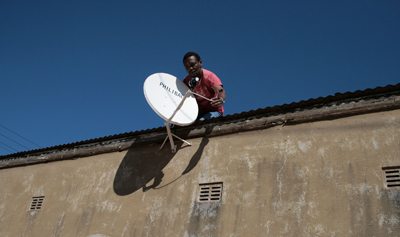
Sub-Saharan Africa censors Mideast protests
As news of Middle Eastern and North African protests swirl around the globe, satellite television and the Internet prove vital sources of information for Africans as governments fearful of an informed citizenry and a free press such as in Eritrea, Equatorial Guinea, and Zimbabwe impose total news blackouts on the developments.
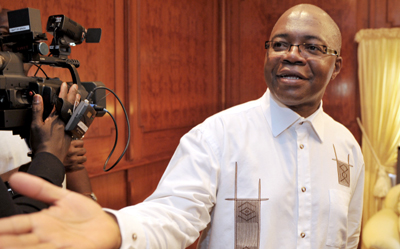
In Gabon, faux news draws real censorship
Last week, Gabon’s government-controlled National Communications Council ordered the TV station of opposition leader André Mba Obame off the air for a period of three months. The ruling is without appeal and, typically, this is how authorities in this oil-rich equatorial African state silence critical news outlets. Except that, this time, the “reporting” for which the…
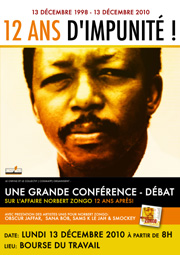
In Norbert Zongo case, 12 years of impunity
For Geneviève Zongo, every December 13 revives excruciating memories of the loss of her husband Norbert Zongo, editor of the weekly L’Indépendant. He was assassinated in 1998 while investigating the murder of a driver working at Burkina Faso’s presidential palace. More painful still is that the killers who ambushed Zongo’s car, riddling it with bullets and…
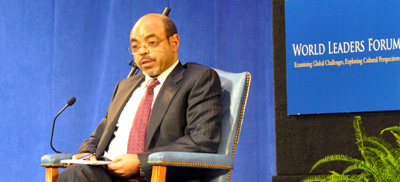
As Zenawi speaks, editors are grilled in Ethiopia
On Wednesday, just a few hours before Ethiopian Prime Minister Meles Zenawi delivered the keynote address at the World Leaders’ Forum at New York’s Columbia University, two journalists back in Addis Ababa endured nearly seven hours of police interrogation.
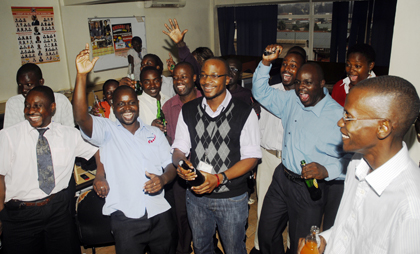
Ugandan media celebrates, fights on after sedition ruling
With surprise and relief, Ugandan journalists, who routinely face the police’s “media crimes” unit, welcomed a partial victory for press freedom on Wednesday. The country’s constitutional court had ruled that criminal sedition was unconstitutional. Even so, there was a consensus that more legal press battles lie ahead.
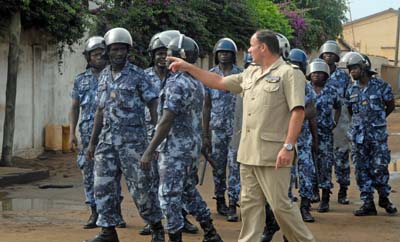
French officer proves ‘allergic’ to photos in Togo
It has been a week since Togolese photojournalist Komi Agbedivlo, better known as “Didier Ledoux,” was verbally abused by a military officer from France as he covered a political demonstration in the capital, Lome. The incident might have gone unnoticed, if not for social media and a year charged with historical symbolism for Togo, which is celebrating 50 years of independence from France. So the…
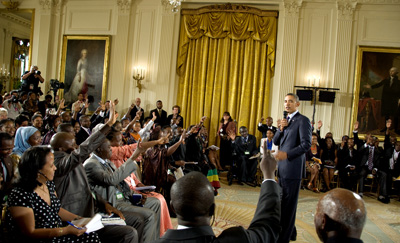
Obama tells Africa forum ‘no reason’ for press restriction
One out of 10 delegates participating this week in U.S. President Barack Obama’s Young African Leaders Forum was a journalist. The forum, a U.S. initiative meant to spark discussions on the future of Africa in a year when 17 countries on the continent are celebrating 50 years of nationhood, did not overlook freedom of the press, as I witnessed in…
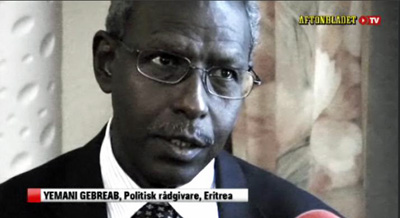
Eritrean official says jailed journalists were security threat
Since a week after September 11, 2001, when the government of Eritrea threw into secret prisons journalists from its once-vibrant private press, the only certainty it has offered about the fate of the prisoners has been ambiguity. Over the years, officials have offered various explanations for the arrests—from nebulous anti-state conspiracies involving foreign intelligence to press law violations. They have…
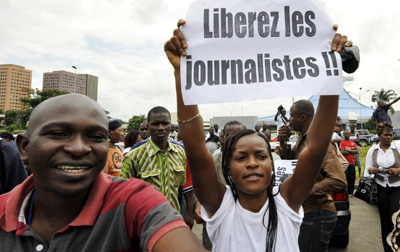
No Wikileaks, but cocoa piece typifies fight over leaks
WikiLeaks’ publication of tens of thousands of pages of confidential U.S. military documents on the Afghanistan war has drawn a lot of attention, perhaps overshadowing the many, more common cases around the world in which journalists publish stories based on leaked documents. This week, for instance, three journalists in Ivory Coast were found guilty of…